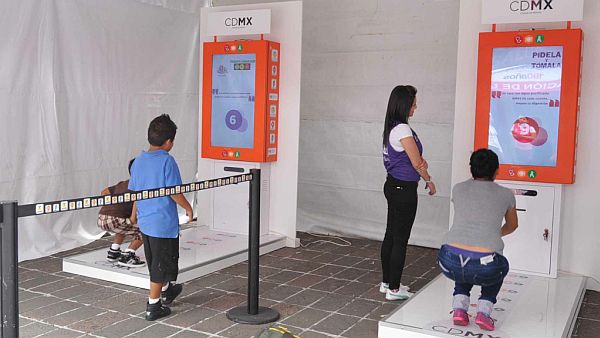Mexico City, Mexico - Chilangos who complain that the peso isnít worth a squat are only telling a half-truth. In reality, the peso is worth two squats ó at least thatíll be the exchange rate on the Mexico City metro system starting next month.
In an effort to fight obesity, the government of Mexico City will begin offering free subway rides in exchange for 10 squats in front of a ticket-dispensing motion sensor. Thatís a five peso value for just a bit of huffing and puffing.
The joint initiative is being launched by the cityís Ministry of Public Health and the private sector to motivate Mexicans to lose weight in a country where obesity levels outranked those of the United States in 2013.
Mexico also had the dubious distinction of being home to Manuel Uribe, who was the fattest man in the world (and at one point weighed 1,300 pounds) before dying of health complications last year.
Public officials are eager to end that trend and combat what Health Minister Josť Armando Ahued calls "the number one health issue" in the country.
As a first step, the city will install 30 squat machines in 15 heavily transited metro stations throughout the capital. The Health Ministry will also hand out pedometers to the first 80,000 people who join the subway-squat program to help them track their energy output.
That incentive isnít quite as attractive as one implemented in Dubai in 2013, when the government offered to pay its citizens 1 gram of gold for every 2.2 pounds they managed to drop. But Mexico is making a conscious effort to slim down.
The Russian government piloted a similar subway squat program last year, when they offered free metro tickets in Moscow in exchange for 30 up-downs in under two minutes.
Mexico, however, will start slower. But the city is not just about exercising the body. Last year the Ministry of Culture launched a campaign to promote reading in metro stations and planned to give away 200 thousand books.
Original Story


